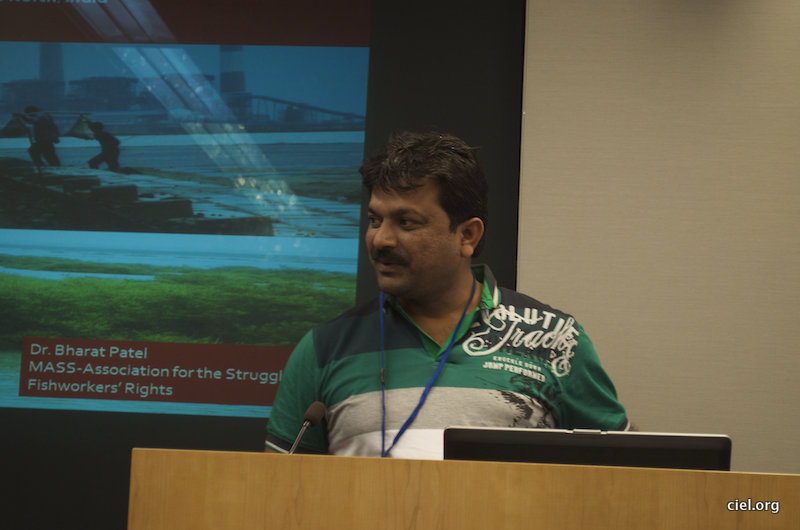Travelling from India on behalf of the Association for the Struggle for Fishworkers’ Rights or Machimar Adhikar Sangharsh Sangathan (MASS), Dr. Bharat Patel presented how the World Bank Group-funded Tata Mundra Power Plant has affected the community of Gujarat during the World Bank’s annual Spring Meetings. His contributions at the Bank’s meeting of Executive Directors brought to light the hazardous conditions caused by the coal power plant in the area, affecting several thousand people. Construction of Tata Mundra began in 2007, and the plant was commissioned in 2012 with a 4,000 Megawatt capacity using coal from Indonesia. The Tata Power company plans to expand its development with World Bank lending.
Watch Dr. Patel tell the story of World Bank Group’s investment in India’s Tata Mundra Power Plant at the Spring 2014 Meeting of the World Bank.
Joining dozens of World Bank Group and International Monetary Fund (IMF) staff members, civil society representatives, economists, policy advisors, academics, government ministers, and others, Dr. Patel presented his case to bring attention to the action needed to protect the livelihoods of more than 25,000 Indian fishermen. These fishing communities face declining water quality, causing severe loss in fish catch and agriculture, and leaving many with no choice but to drink hazardous groundwater. Although reports have been conducted by the International Finance Corporation to evaluate the project’s impacts, little has been done to improve the situation, Mr. Patel reported.

Unfortunately his case is not distinct; some World Bank-funded projects that aim to alleviate poverty have done more harm than good. Mr. Patel’s presentation gave voice to the concerns of many underrepresented community members who have been affected by a destructive Bank-funded project. Mr. Patel called for accountability for international financial institution investment in damaging projects and cited the need to improve assessment standards to provide adequate compensation for damages.
Originally posted on August 27, 2014.
